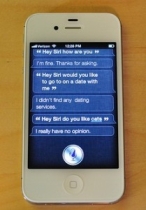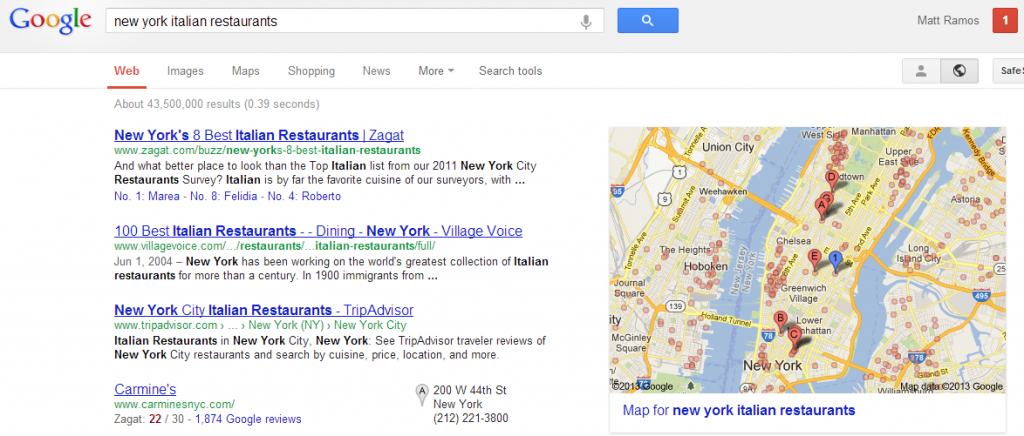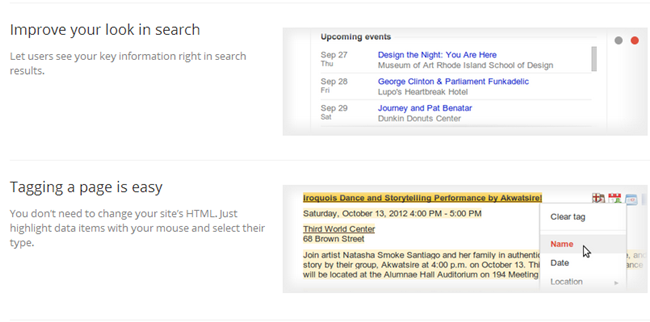
Our appliances are becoming “smart”. We have smart phones, smart cars, and even smart TV’s. All of them provide us with access to data and useful applications to make our daily lives more convenient. As many Android users have noticed, Google powers their devices. Google has made great strides in providing the fastest most complete search engine. They already integrate images, video, history and your location, among other things, to predict what you are searching for based on upon keywords. After all these additions to searches what is Google missing?
Understanding
Google does have an in-depth understanding of what the person is searching for. This is because Google searches are based upon keywords. From these keywords Google funnels down and guesses what the person is looking for based upon related keywords, history, and location. All these improvements are great, but there are holes in the searches. When certain keywords are put together they can change the entire meaning of a search. Especially when searching for very specific information that may not have popular keywords, if Google cannot find specific information about those keywords the search engine has to target related keywords that cover a broad topic, then glean the needed information from those results.
 Recently, new commercials have been introduced for the new iPhone 4S with the personal assistant Siri. Siri’s artificial intelligence has the capability to understand simple language voice commands. These commands are not specifically keyword based. Siri’s depth of understanding is what really sets the AI apart. For example, in the commercial a user gives the command “Where should we eat?” Then Siri gives options using their location and lists places nearby to eat. Siri understood that the user is looking for restaurants based on the word “eat”.
Recently, new commercials have been introduced for the new iPhone 4S with the personal assistant Siri. Siri’s artificial intelligence has the capability to understand simple language voice commands. These commands are not specifically keyword based. Siri’s depth of understanding is what really sets the AI apart. For example, in the commercial a user gives the command “Where should we eat?” Then Siri gives options using their location and lists places nearby to eat. Siri understood that the user is looking for restaurants based on the word “eat”.
When I searched for “Where should we eat?” on my laptop via Google and HTC mobile phone the results lacked the intent of the user. All I got in return was a list of blogs with the same title and a trivia food game link.
The lack of understanding from Google requires the searcher to structure their searches based upon specific keywords. We depend on Google’s knowledge and hopefully someone, somewhere has written something with the same keywords we have searched. If Google would provide the same understanding as the Siri assistant, an appropriate search may include those blogs but also maps showing food places near you, prices of their menus, hours of operation, or pictures of restaurants. Google is new in this game and is currently working to expand on its knowledge graph. Clearly whatever they offer in the future it will need to go beyond what Siri is capable of for Google to compete.
What does this mean for SEO? When Google can deepen it’s understanding in searches it will generate more possible links to be shown without relying on specific keyword-based searches. Which gives websites a greater chance of being found depending on the knowledge graph and where their keywords come into play in predicting user search intent. This should only enhance the search experience and provide more complete information for users.
Increase your Online Marketing exposure in 2012 with the above tips and contact us if you need assistance.
Image credits go to JyungolJyon



2 thoughts on “Smart Phones to Smart Searches”